
Domain 1
DOMAIN 1: Planning and Preparation
Effective teachers plan and prepare for lessons using their extensive knowledge of the content area, the relationships among different strands within the content and between the subject and other disciplines, and their students’ understanding of the subject as identified through effective use of assessments. Instructional outcomes are clear, represent important learning in the subject, and are aligned to academic standards. The instructional design includes relevant learning activities and modalities that are well sequenced and support all students in meeting high expectations in an environment that provides positive, equitable, and inclusive opportunities for learning.
DOMAIN 1: Planning and Preparation
Effective Non-Teaching Professionals (NTPs) plan and prepare to deliver high-quality services equitably to all learners based upon extensive evidence-based knowledge of their discipline relative to individual and systems-level needs and within the context of interdisciplinary collaboration. Service delivery outcomes are clear, measurable, and represent relevant goals for the individual and system.
Courses tagged with "Domain 1"
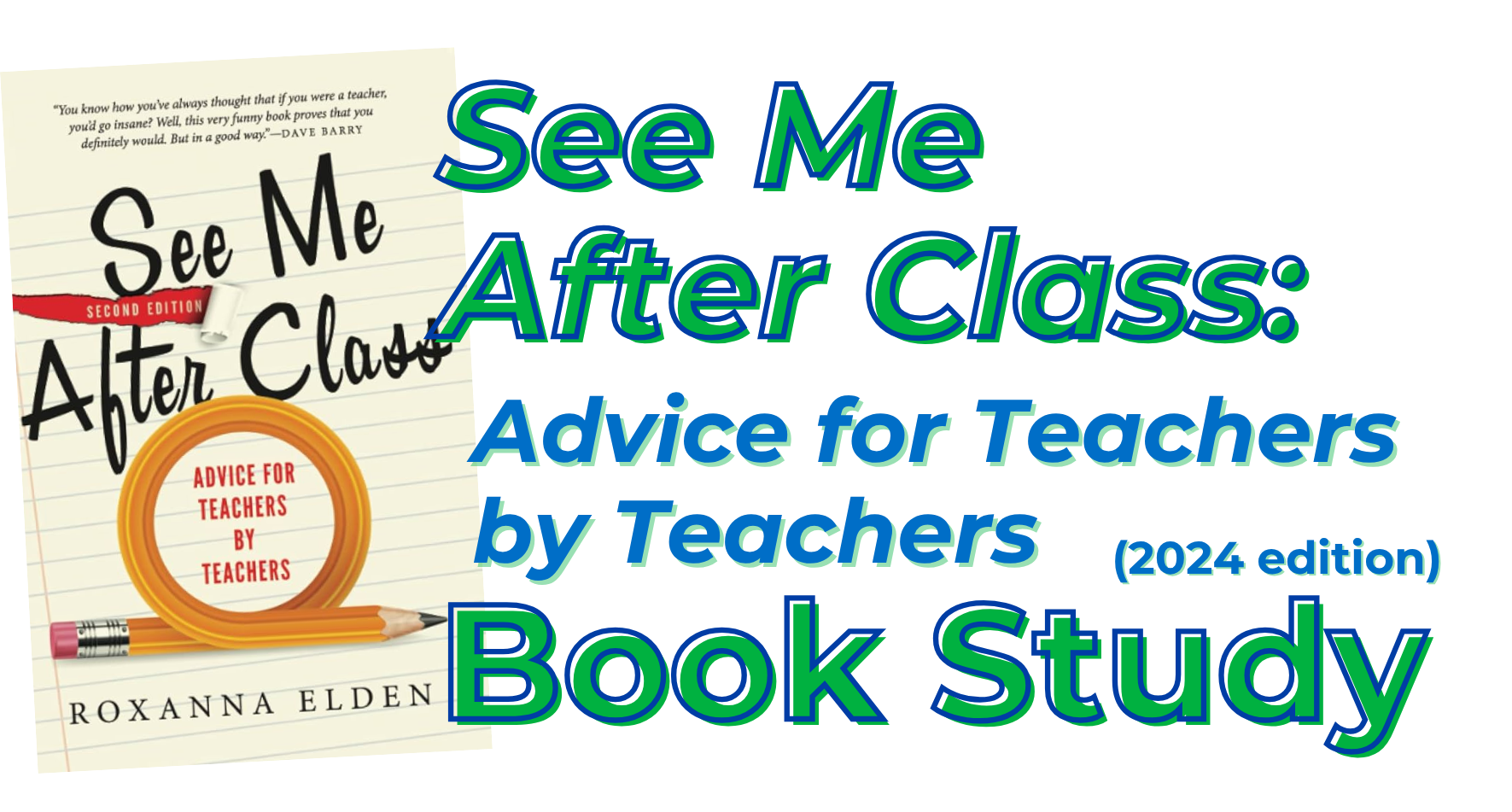
See Me After Class: Advice for Teachers by Teachers - Book Study
- LIVE: 04/22/2026
- 8 Hours
See Me After Class: Advice for Teachers by Teachers (2024 edition) - Book Study
Course Description: An honest, funny, and refreshingly real look at the teaching life through Roxanna Elden’s See Me After Class. This book pulls back the curtain on the everyday challenges teachers face—from classroom chaos to moments of quiet triumph—and reminds us that we’re not alone in the struggle. Through witty anecdotes and heartfelt reflections, Elden captures the exhaustion, humor, and humanity of working in schools today, including relatable stories from special education and inclusion settings. Through discussion and reflection, this book study encourages educators to rediscover their purpose and passion for teaching with a focus on resilience, authenticity, and the everyday courage it takes to keep showing up for students.
Presenter: Pamela Watts, MA
LIVE Book Discussion Session:: Wednesday, April 22, 2026, from 7:00 PM to 8:00 PM
Course Completion Criteria
To complete this course, participants must:
OR by responding to Book Discussion Forums and replying to at least one post in each forum.
Number of Learning Hours for this Course
Members who complete this course receive 8 hours of Act 48 and/or a certificate that may apply for Chapter 14 hours. Your employer has sole discretion to determine if this course qualifies for Chapter 14 hours. The 8 hours for this course include 6 hours to read, 1 hour for the Reflection Guide, and 1 hour to complete the discussion.

Americanized: Rebel Without a Green Card - Book Study
- LIVE: 04/14/2026
- 8 Hours
Americanized: Rebel Without a Green Card - Book Study
Course Description: Follow author, Sara Saedi, through her teenage journey as an Iranian immigrant living the United States. In this memoir, Saedi humorously depicts the awkward challenges of high school while tackling the complexities of discovering and navigating her status as an undocumented immigrant. In this book study, participants start by reflecting on their expectations for the book before reading Americanized: Rebel Without a Green Card. This book study is perfect for educators who work students who are immigrants or just want a window into the experience of newcomers like Saedi.
Presenter: Dr. Gina L. Gullo, EdD, Med
LIVE Book Discussion Session:: Tuesday, April 14, 2026, from 7:00 PM to 8:00 PM
Course Completion Criteria
To complete this course, participants must:
OR by responding to Book Discussion Forums and replying to at least one post in each forum.
Number of Learning Hours for this Course
Members who complete this course receive 8 hours of Act 48 and/or a certificate that may apply for Chapter 14 hours. Your employer has sole discretion to determine if this course qualifies for Chapter 14 hours. The 8 hours for this course include 5.5 hours to read, 1.5 hours for the Reflection Guide, and 1 hour to complete the discussion.
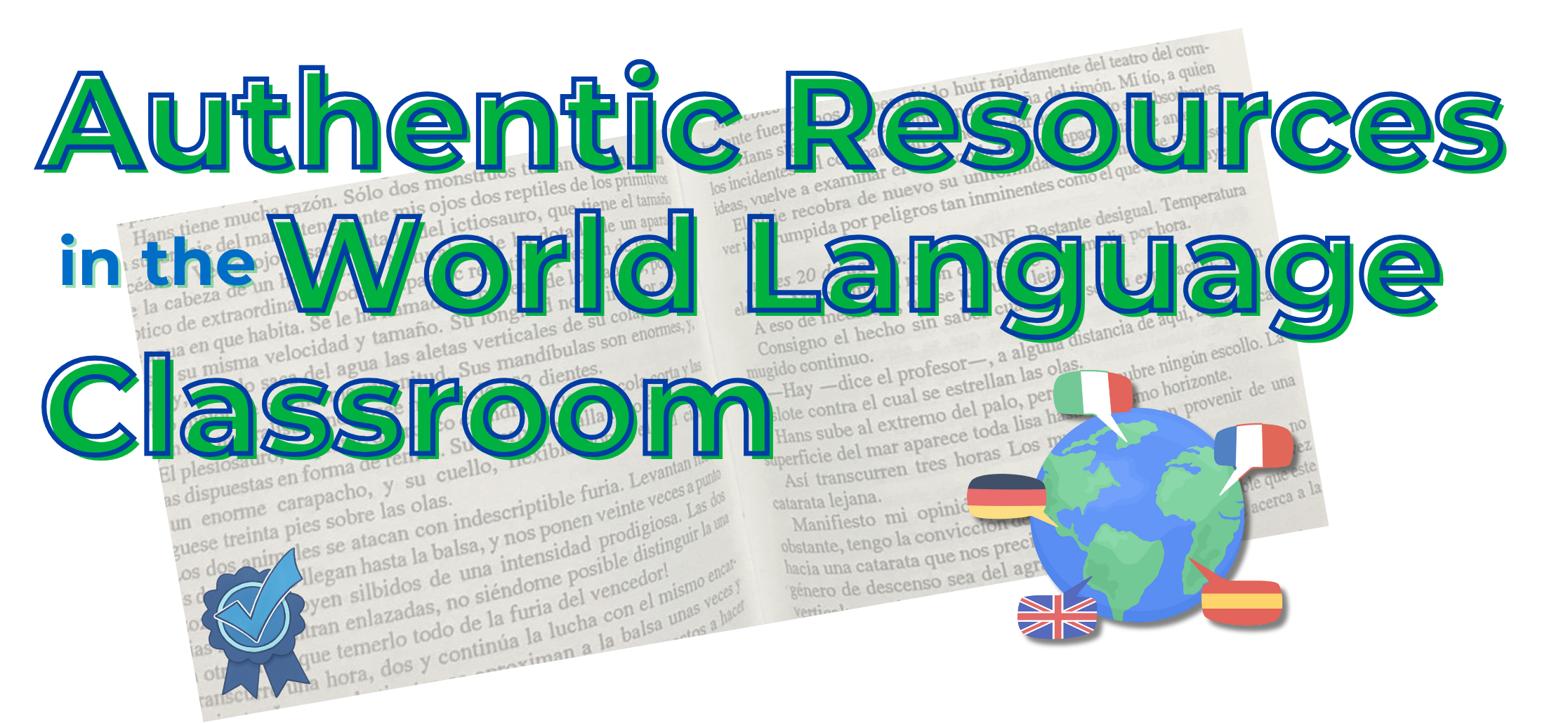
Authentic Resources in the World Language Classroom
- LIVE: 03/24/2026
- 1 Hour
Authentic Resources in the World Language Classroom
Course Description: You found a great authentic resource! Now what? And is it the right one? Discover best practices for selecting and integrating these materials in the world language classroom as well as pitfalls to avoid. Enhance student engagement, language acquisition, and cultural awareness through comprehension and analytical tasks based on target language oral and visual texts.
Presenter: Mike Bogdan, MA, NBCT
Course LIVE Session: Tuesday, March 24, 2026 from 7:00 PM to 8:00 PM
Course Completion Criteria: To complete this course, participants must:- Join and participate in the 1.5 hour LIVE webinar on Tuesday, March 24, 2026 from 7:00 PM to 8:00 PM.
- Complete the Confirmation of Active Participation quiz by sharing the code word from the LIVE webinar.
- Complete the Feedback to PSEA About this Course form AFTER the LIVE webinar.
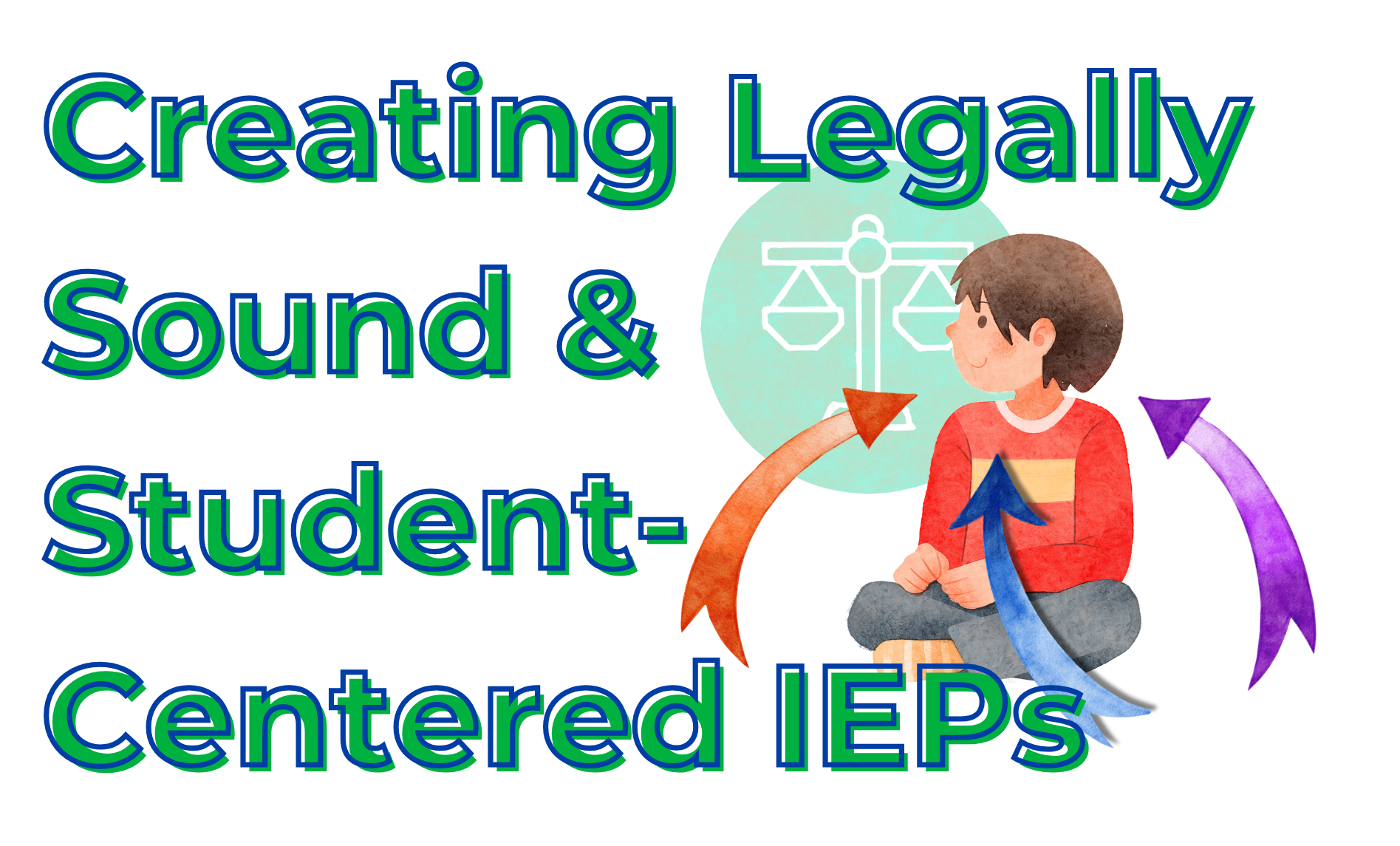
Creating Legally Sound and Student-Centered IEPs
- LIVE: 03/11/2026
- 1.5 Hours
Creating Legally Sound and Student-Centered IEPs
Course Description: Developing an Individualized Education Program (IEP) that truly meets a student’s needs requires more than filling out forms—it requires understanding the legal framework, team collaboration, and a commitment to meaningful outcomes. This session provides educators with a clear, practical overview of the laws that govern special education, including IDEA, Chapter 14, Section 504, and the role of FAPE. Participants will walk through each step of IEP development—from pre-referral through implementation—with a focus on compliance, defensibility, and compassion. Real-world examples, recent hearing officer decisions, and case studies will illustrate how to balance legal requirements with individualized support and family collaboration
Presenter: Pamela Watts, MA
Course LIVE Session: Wednesday, March 11, 2026 from 7:00 PM to 8:30 PM
Course Completion Criteria: To complete this course, participants must:- Join and participate in the 1.5 hour LIVE webinar on Wednesday, March 11, 2026 from 7:00 PM to 8:30 PM.
- Complete the Confirmation of Active Participation quiz by sharing the code word from the LIVE webinar.
- Complete the Feedback to PSEA About this Course form AFTER the LIVE webinar.
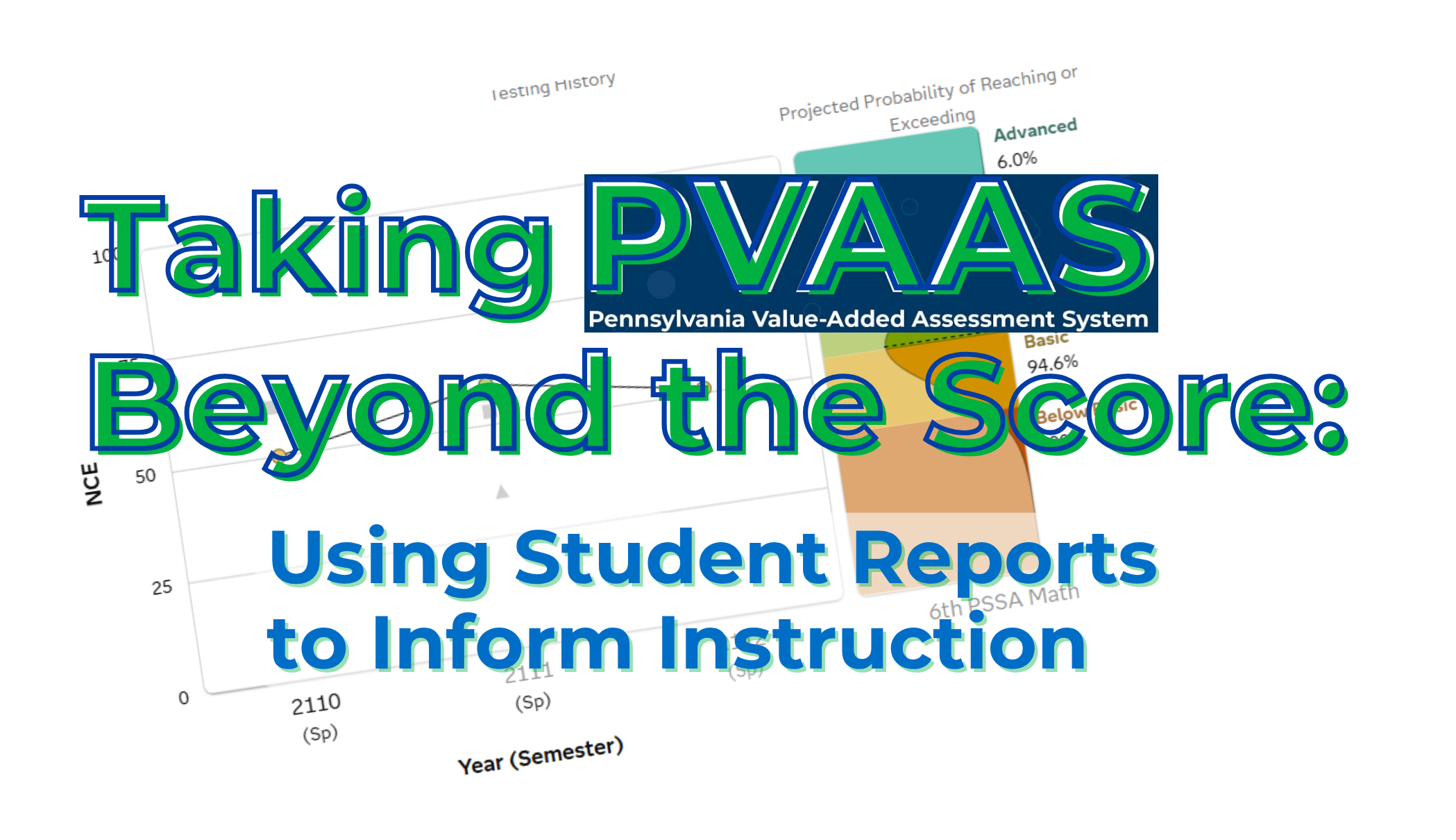
Taking PVAAS Beyond the Score: Using Student Reports to Inform Instruction
- LIVE: 2/26/2026
- 1 Hour
Taking PVAAS Beyond the Score: Using Student Reports to Inform Instruction
Course Description: Tired of seeing PVAAS as just an accountability score? This session moves beyond accountability to explore the powerful, actionable insights that teachers can access in the PVAAS Student Reports module. Leave with practical strategies on how PVAAS can help to inform your teaching with a focus on student needs and how you can dive even deeper through the seamless integration of the platform with PA Firefly and Classroom Diagnostic Tools. Transform your teaching and student outcomes by shifting your focus from evaluation to utility.
Presenter: Dr. Gina L. Gullo, EdD, Med
Course LIVE Session: Thursday, February 26, 2026 from 7:00 PM to 8:00 PM
Course Completion Criteria: To complete this course, participants must:- Join and participate in the 1.5 hour LIVE webinar on Thursday, February 26, 2026 from 7:00 PM to 8:00 PM.
- Complete the Confirmation of Active Participation quiz by sharing the code word from the LIVE webinar.
- Complete the Feedback to PSEA About this Course form AFTER the LIVE webinar.
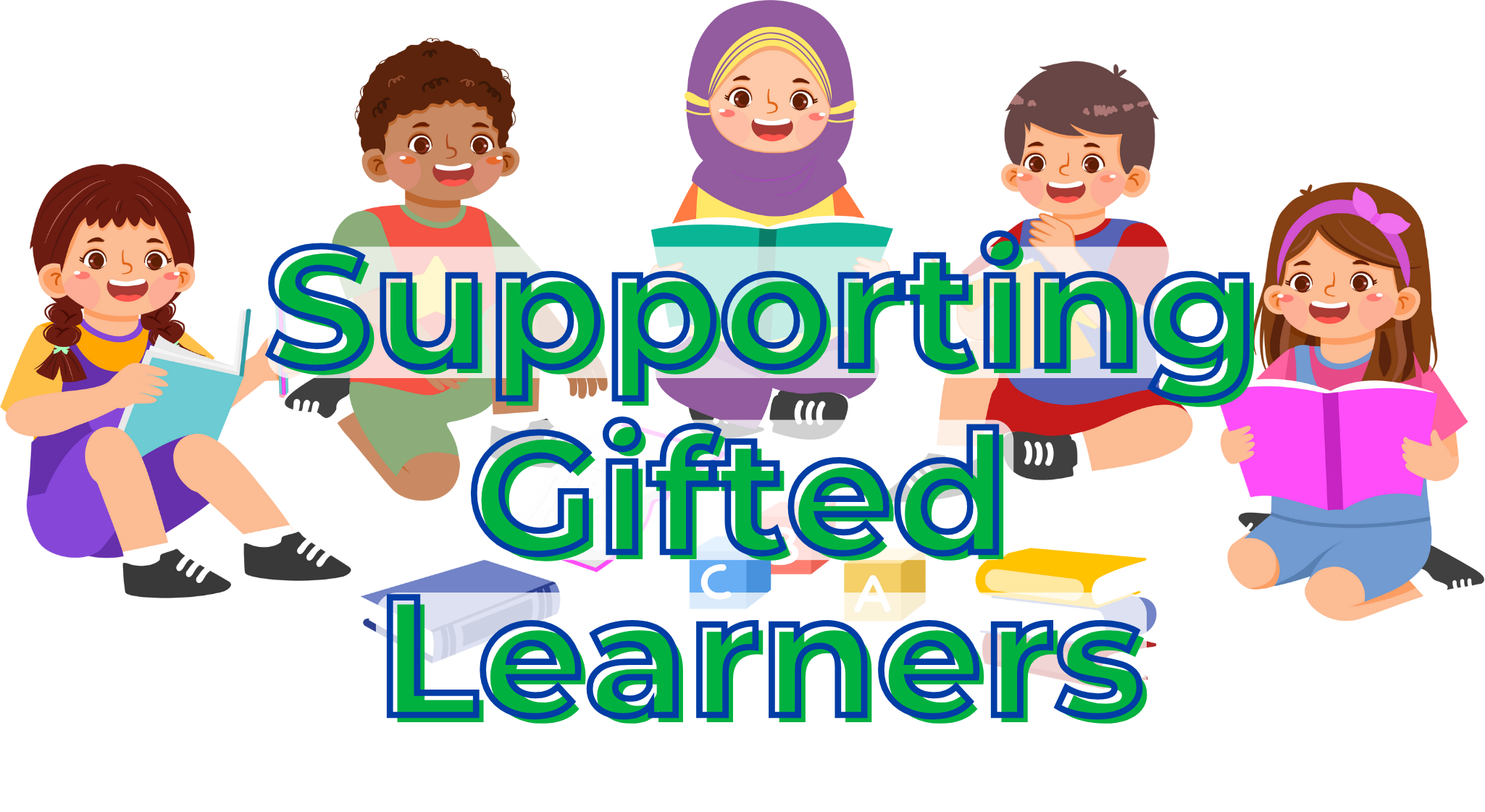
Supporting Gifted Learners
- LIVE: 02/18/2026
- 1.5 Hours
Supporting Gifted Learners
Course Description: Gifted learners have incredible abilities but sometimes their progress plateaus, boredom sets in, or behavior challenges arise because their needs are not being met. We will examine the unique characteristics of gifted learners, discuss how general education teachers can support and challenge them, and share strategies for differentiation..
Presenter: Mike Bogdan, MA, NBCT
Course LIVE Session: Wednesday, February 18, 2026 from 7:00 PM to 8:30 PM
Course Completion Criteria: To complete this course, participants must:- Join and participate in the 1.5 hour LIVE webinar on Wednesday, February 18, 2026 from 7:00 PM to 8:30 PM.
- Complete the Confirmation of Active Participation quiz by sharing the code word from the LIVE webinar.
- Complete the Feedback to PSEA About this Course form AFTER the LIVE webinar.
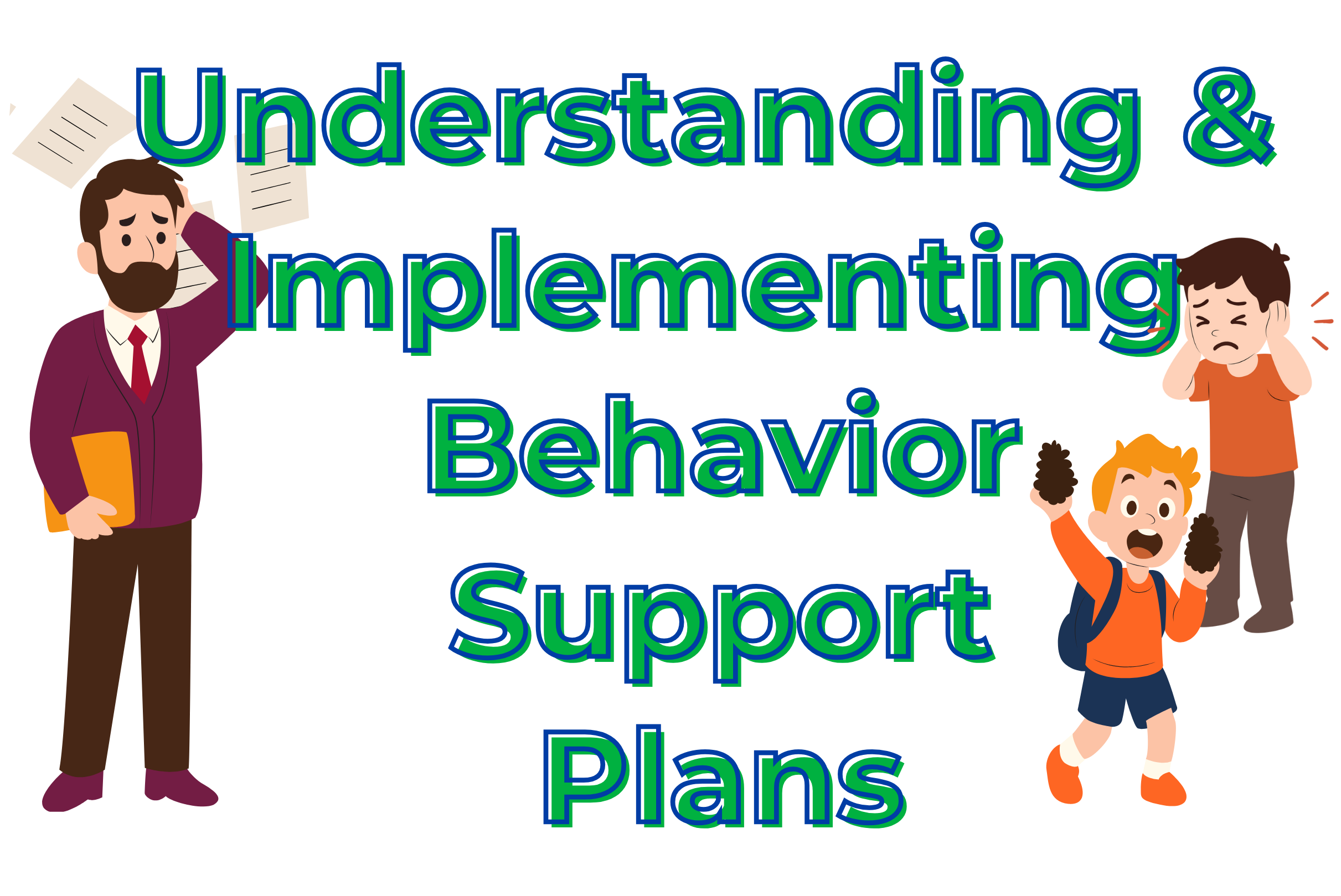
Understanding and Implementing Behavior Support Plans
- LIVE: 02/03/2026
- 1.5 Hours
Understanding and Implementing Behavior Support Plans
Course Description: This training provides educators with a foundational understanding of Behavioral Support Plans (BSPs). Participants will learn how BSPs are developed, key components of effective plans, and their critical role in supporting students with disabilities. The training emphasizes proactive strategies, data collection, collaboration with the educational team, and practical techniques for promoting positive behavior and safety in the classroom. This session equips participants with the tools and knowledge needed to effectively create, implement and support individualized behavioral interventions.
Presenter: Pamela Watts, MA
Course LIVE Session: Tuesday, February 3, 2026 from 7:00 PM to 8:30 PM
Course Completion Criteria: To complete this course, participants must:- Join and participate in the 1.5 hour LIVE webinar on Tuesday, February 3, 2026 from 7:00 PM to 8:30 PM.
- Complete the Confirmation of Active Participation quiz by sharing the code word from the LIVE webinar.
- Complete the Feedback to PSEA About this Course form AFTER the LIVE webinar.

Your AI Assistant: Using AI in Planning & Preparation
- 1.5 Hours
- LIVE Session:
About this session: July 29, 2025 from 10-11:30 AM
Artificial Intelligence (AI) is not only a tool for students but can offer educators assistance in their instructional planning. In this hands-on, interactive session, you will explore ways to use your AI of choice so that you have more time to refine your plans and be the best teacher you can be. With a few targeted AI prompts, you can have your AI assistant search the web for lesson plan ideas, report on the latest evidence-based strategies to address students’ needs, suggest customized assessment items that align with state standards and assessment benchmarks, and more. Come to this session ready to use your preferred AI platform.
Parts of this session may be recorded for use in a future PEARL course. By enrolling, you consent to be recorded and understand that the recording may be viewed by others.
Instructor: Dr. Gina Laura Gullo, Ed.D.

Educating for Global Competence: Preparing Our Students to Engage the World
- 7 Hours
About this session: Exploring and engaging with global issues and perspectives can benefit all students regardless of the content area. Through numerous examples of lessons from multiple grade levels and subject areas, authors Veronica Boix Mansilla & Anthony W. Jackson provide practical strategies for incorporating intercultural themes that support curricula and the interests of young people.
Learning Hours: Those who complete this course will earn 7 Act 48 hours or a certificate of completion that may be submitted for possible Chapter 14 hours. The 7 hours for course completion includes 5 hours to read the book, 1 hour to complete the Reflection Guide, and 1 hour to complete the discussion.
Instructor: Mike Bogdan, MA, NBCT

The Body Keeps the Score – Book Study
- 16.5 Hours
Course Description:
The impacts of trauma are everywhere but can be difficult to recognize and even more challenging to address. Dr. Bessel van der Kolk's The Body Keeps the Score has been called “the modern user’s guide to understanding trauma” and offers readers a toolkit to support them as they navigate the profound and lasting impacts of trauma on mental and physical well-being. Designed for educators and support professionals that work with students who have experienced trauma, this interactive book study provides participants with structured reflection and meaningful discussion. Join your PSEA siblings and facilitator, Dr. Gina Gullo, on a reading journey that will help you to support students who have experienced trauma and to foster self-awareness and healing in your own life.Learning Hours: Members who complete this course receive 16.5 HOURS of Act 48 and/or a certificate that may apply for Chapter 14 hours. Your employer has sole discretion to determine if this course qualifies for Chapter 14 hours. These hours breakdown as follows:
Hours breakdown:1.5 hour(s) to complete the reflection guide, and
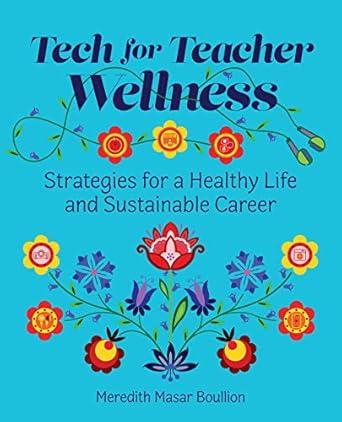
Tech for Teacher Wellness - Book Study
- 5 Hours
Course Description:
This text by Meredith Masar Boullion provides practical strategies for using technology to make positive changes in your life, in the classroom, and on campus. Also, it covers techniques for using technology to support effective family and student communication as well as to promote efficiency in planning and assessment.Learning Hours: Members who complete this course receive 5 HOURS of Act 48 and/or a certificate that may apply for Chapter 14 hours. Your employer has sole discretion to determine if this course qualifies for Chapter 14 hours. These hours breakdown as follows:
Hours breakdown: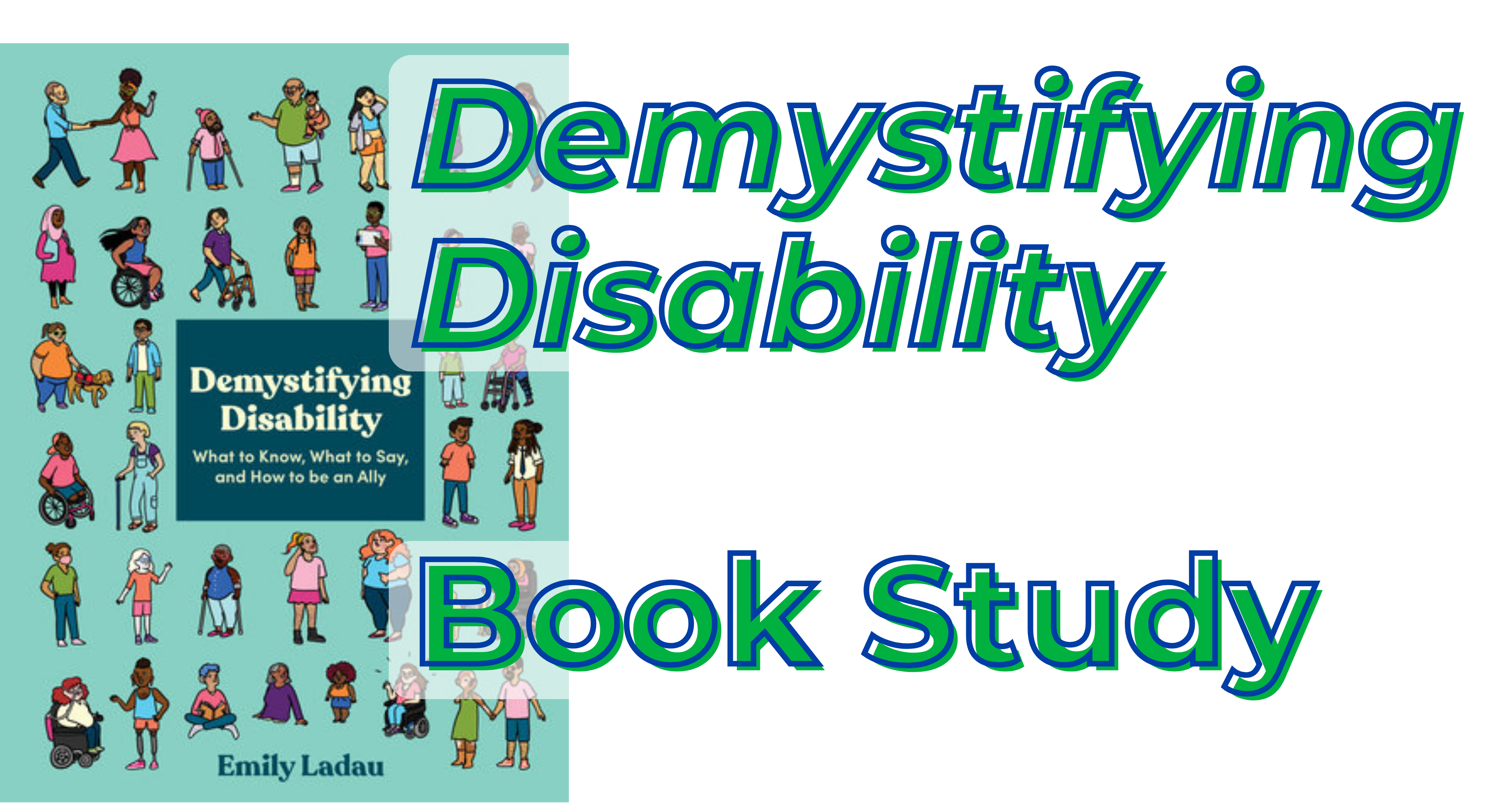
Demystifying Disability: What to Know, What to Say, and How to Be an Ally
- 6.5 Hours
About this session: Demystifying Disability is a practical, accessible guide to understanding disability and becoming a better ally to the disability community. Written by disability rights advocate Emily Ladau, the book offers clear, actionable advice for how to engage respectfully and inclusively with disabled people. With a conversational tone and real-world relevance, Demystifying Disability serves as a much-needed resource for anyone who wants to contribute to a more inclusive and equitable world. Whether you're new to disability awareness or looking to deepen your understanding, this book offers insight, guidance, and a call to action.
Learning Hours: Those who complete this course will earn 6.5 Act 48 hours or a certificate of completion that may be submitted for possible Chapter 14 hours. The 6.5 hours for course completion includes 4.5 hours to read the book, 1 hour to complete the Reflection Guide, and 1 hour to complete the discussion.
Instructor: Pamela Watts, MA

Beautiful Child - Book Study
- 15 Hours
Course Description:
Join us as we explore Beautiful Child, a powerful true story by renowned special education teacher and author Torey Hayden. This unforgettable book follows Torey's efforts to reach Venus, a seven-year-old girl who refuses to speak and shows no signs of emotional connection. As layers of trauma begin to surface, Torey’s dedication and compassion are put to the test. Beautiful Child is a deeply moving journey into resilience, healing, and the power of human connection. Perfect for readers who appreciate emotional depth, real-life stories, and the triumph of empathy.Learning Hours: Members who complete this course receive 15 HOURS of Act 48 and/or a certificate that may apply for Chapter 14 hours. Your employer has sole discretion to determine if this course qualifies for Chapter 14 hours. These hours breakdown as follows:
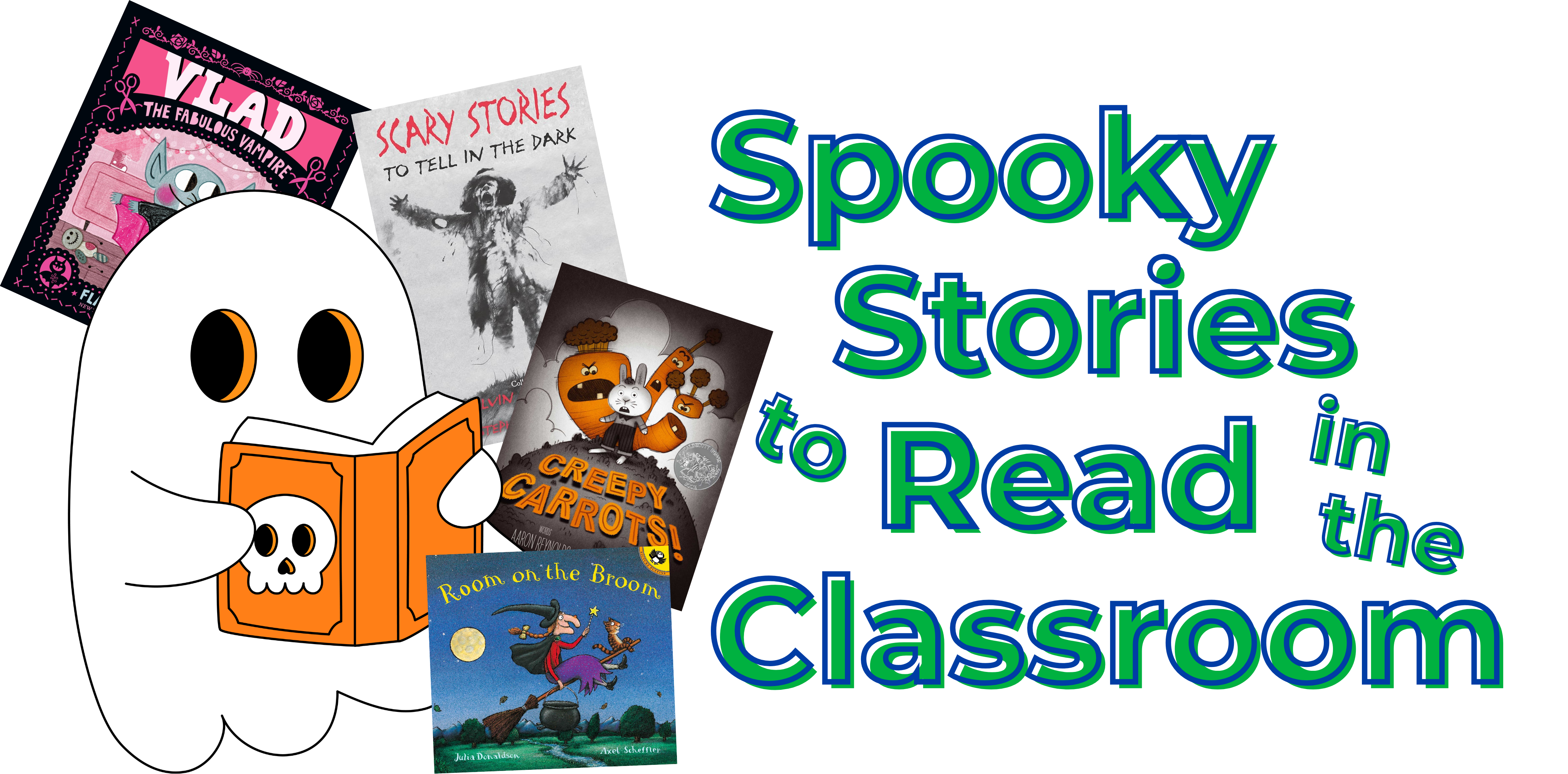
Spooky Stories to Read in the Classroom
- 6.5 Hours
About this session:
Looking for some great Halloween reads? Join your PSEA union siblings in a celebration of spooky children’s literature in this Halloween-themed book study. Read Alvin Schwartz’s classic, Scary Stories to Tell in the Dark, and your choice of any three (3) of the following:
- 2X2=Boo! A Set of Spooky Multiplication Stories by Loreen Leedy
- Crankenstein by Samantha Berger
- Creepy Carrots! by Aaron Reynolds
- Room on the Broom by Julia Donaldson
- The Little Old Lady Who Was Not Afraid of Anything by Linda Williams
- Vlad, the Fabulous Vampire by Flavia Z. Drago
Participate in a series of hands-on reflection and planning activities where you will share your ideas for using the books in your own context. Then, join fellow educators in a discussion of the books. This book study features books written for elementary grades, but those who will use the books with older students are welcome to join as well!
Learning Hours: Members who complete this course receive 6.5 HOURS of Act 48 and/or a certificate that may apply for Chapter 14 hours. Your employer has sole discretion to determine if this course qualifies for Chapter 14 hours. The 6.5 hours for this course include 4 hours to read, 1.5 hours for the Reflection Guide and Planning Databases, and 1 hour to complete the discussion.
Facilitator: Dr. Gina L. Gullo, Ed.D.

The Food Group series by Jory John & Pete Oswald
Course Description: Jory John and Pete Oswald bring “charming and enduring text” and “bold, expressive illustrations” together in their series of books focused on foods and their behaviors. The Food Group series includes well-known, bestselling books including:
The Good Egg;
The Bad Seed;
The Cool Bean;
The Couch Potato;
The Smart Cookie; and
seasonal versions of these stories.
In this book discussion, participants explore applications for how these books can be used at all levels to promote social and emotional skill fluency and help prevent bullying during the learning process. Picture book are not just for the elementary kids anymore, so middle and high school educators should consider joining as well.
Participants must access and read at least three Food Group series books to participate in this course.
Course Hours: Members who complete this course receive 4.5 HOURS of Act 48 and/or a certificate that may apply for Chapter 14 hours. Your employer has sole discretion to determine if this course qualifies for Chapter 14 hours.
- 4.5 Hours

How to be an Antiracist by Ibram X. Kendi
Course Description: In this asynchronous, online book study, participants will prepare for, read, and discuss Ibram X. Kendi’s How To Be An Antiracist for a total of 15 Act 48 hours or a certificate to submit for 15 Chapter 14 hours (per district approval). The New York Times called this book “a groundbreaking approach to understanding and uprooting racism and inequality in our society—and in ourselves.”
During the Prereading activities, participants will learn about the book and author. Then, they will explore strategies for critical reading from their lens as an educator. Then they will engage in two activities i: one focused on identifying perspectives and another on applying this practice to students.
During the actual reading, participants should read the book critically and complete chapter-by-chapter reflection prompts throughout their reading journey (not just at the end) to help them remember key points in the text.
During the Postreading activities, participants will engage in forum-based dialogues about their reactions, learning, and applications for the material in the school setting. Participants will leave this session with knowledge and resources to apply what they read with students at any level.
Course Hours: Members who complete this course receive 15 HOURS of Act 48 and/or a certificate that may apply for Chapter 14 hours. Your employer has sole discretion to determine if this course qualifies for Chapter 14 hours.
The hours breakdown is
10 hours for reading,
1.5 hours for pre-reading activities
2 hours for reflection prompts
1.5 hours for post-reading activitis
Total: 15 hours
- 15 Hours

Little Legends/Dreamers/Leaders by Vashti Harrison
Course Description: Black and Indigenous People of Color (BIPOC) are often under-represented in the standard K-12 curriculum, challenging educators to bring these important histories to students in other ways. Author and illustrator, Vashti Harrison, introduces readers to dozens of influential BIPOC figures in her series of Little Leader Books including:
Little Leaders: Bold Women in Black History;
Little Dreamers: Visionary Women Around the World; and
Little Legends: Exceptional Men in Black History.
Participants in this book series study must access and read either one entire book (40 histories) or any combination of 40 histories from all three books to participate in this course.
Course Hours: Members who complete this course receive 4.5 HOURS of Act 48 and/or a certificate that may apply for Chapter 14 hours. Your employer has sole discretion to determine if this course qualifies for Chapter 14 hours.
- 4.5 Hours

The Questioneers Book Study
Course Description: The Questioneers by Andrea Beaty (author) and
David Roberts (illustrator) is a series of picture books and early-reader
chapter books written between 420 and 820 Lexiles. Each picture book introduces
a new ‘questioneer’ as they come to realize their own strengths including Ada
Twist (Scientist), Rosie Revere (Engineer), Iggy Peck (Architect), Sofia Valdez
(Future Prez), and Aaron Slater (Illustrator). The chapter books take their
stories deeper and allow students to follow the students as their growth
mindsets take them further into their passions. These books may be elementary
focused, but the lessons learned are valuable for learners at any level! In
this book discussion, you may read any 1 picture book and any 1 chapter book in
the series for a total of 2 books. These two books will require 2 ½ hours
of reading time with 2 hours of complementary PEARL-based content (1.5 hours for the discussion questions and 0.5 hours for reflection items) for a total of 4 ½ total hours of learning.
Course Hours: Members who complete this course receive 4.5 HOURS of Act 48 and/or a certificate that may apply for Chapter 14 hours. Your employer has sole discretion to determine if this course qualifies for Chapter 14 hours.
The hours breakdown is 2.5 hours for reading,
1.5 hours for discussion activities
0.5 hours for reflection prompts.
- 4.5 Hours

What You Do Matters series by Kobi Yamada
Course Description: Children’s literature, including picture books, offer powerful tools to bring learning to students at all levels. In this book series discussion, readers will Kobi Yamada’s three award-winning, New York Times best-selling books as featured in the What You Do Matter boxset:
What Do You Do With An Idea?;
What Do You Do With A Chance?; and
What Do You Do With A Problem?
Each of these books offers a unique take on elements that students face daily and are growing to better understand presented through the combination of Mae Besom’s gorgeous illustration and Kobi Yamada’s unique take on symbolic narrative. The course will focus on parallels between these books and social and emotional skills development to facilitate a greater collective knowledge about how to engage students in critical self-reflection and self-management.
Participants must access and read all three Kobi Yamada books to participate in this course.
Course Hours: Members who complete this course receive 4.5 HOURS of Act 48 and/or a certificate that may apply for Chapter 14 hours. Your employer has sole discretion to determine if this course qualifies for Chapter 14 hours.
- 4.5 Hours

Author Studies
Course Description: This course explores the purpose of author studies to get students reading and provide differentiation through leveled texts. Author Studies provide an opportunity to connect readers to a variety of texts, both fiction and non-fiction. Author studies can be used to enhance the curriculum, explore types of writing or simply get students reading great texts! Author studies get your students reading and writing. It provides the teacher with an engaging tool to differentiate instruction and teach high interest text.
Course Hours: Members who complete this course receive 1 HOUR of Act 48 and/or a certificate that may apply for Chapter 14 hours. Your employer has sole discretion to determine if this course qualifies for Chapter 14 hours.
- 1 Hour

Wonder Women: The Importance of Strong Females in Children’s Books
Extended Course Name: Wonder Women: The Importance of Strong Female Characters, Everyday Heroes, and Making Connections to Children’s Books
Course Description: Children’s books have always included spunky, feisty female characters like Ramona and Beezus Quimby, Matilda, and Harriet the Spy. But is spunky and feisty enough? The blockbuster success of the 2017 Wonder Woman movie and 2018’s Black Panther indicates there is room for much more - in movie theaters and children’s books. Female characters that overcome obstacles, solve problems, break stereotypes, and empower others have great appeal to both boys and girls.
This class focuses on choosing books for our classrooms and libraries that affirm positive roles for girls and boys. Ms. Bissonette discuss the assumptions we make when we think in terms of “girl books” and “boy books”; the effect gender stereotypes have on young readers (and the publishing industry’s puzzling role in perpetuating those stereotypes); and the role children’s books have in developing empathy among young readers (which can lead to reduced bullying among other things). Partiticpants explore the evolving theory about children’s books as "mirrors, windows, and sliding doors" and how reading the right books helps students rehearse for and succeed in real life situations. Finally, children's author Aimee Bissonette talks about the reactions and responses she's gotten from girls and boys with whom she has shared her own “strong women” books
Course Hours: Members who complete this course receive 2 HOURS of Act 48 and/or a certificate that may apply for Chapter 14 hours. Your employer has sole discretion to determine if this course qualifies for Chapter 14 hours.
- 2 Hours

Culturally Responsive Literature in the Classroom
Course Description: This session, presented by NEA members and Chrissy Waldhoer (Oklahoma Elementary Teacher) and Elizabeth Luis (Michigan Secondary ELA Teacher), was captured from a live PSEA CPL webinar broadcast on July 15, 2021, and it presents ideas for implementation of culture into all literature and standards for reading/writing in the classroom. In this course, participants learn about approaches to learning in the classroom that use cultures and backgrounds to connect students to the literature, particularly at the elementary level.
Course Hours: Members who complete this course receive 1.5 HOURS of Act 48 and/or a certificate that may apply for Chapter 14 hours. Your employer has sole discretion to determine if this course qualifies for Chapter 14 hours.
- 1.5 Hours

Curriculum Inclusivity in Action
Course Description: In this session, educators receive practical and immediate steps to assess the manner in which their curriculum is providing equitable representation to all students.
Course Hours: Members who complete this course receive 2 HOURS of Act 48 and/or a certificate that may apply for Chapter 14 hours. Your employer has sole discretion to determine if this course qualifies for Chapter 14 hours.
- 2 Hours

Social-Emotional Equitable Learning
Course Description: This presentation, taken from a live PSEA Center for Professional Learning Webinar broadcast session on September, 21, 2021 is rooted in relational equity and culturally responsive social emotional learning. Participants will learn about the importance of building authentic relationships with students, families, and staff members and how these essential relationships impact student success, resiliency, and hope. They will learn how relationships are the core to beginning the work of SEL, and once secure relationships are established, SEL tools can be incorporated.
Course Hours: Members who complete this course receive 2 HOURS of Act 48 and/or a certificate that may apply for Chapter 14 hours. Your employer has sole discretion to determine if this course qualifies for Chapter 14 hours.
- 2 Hours
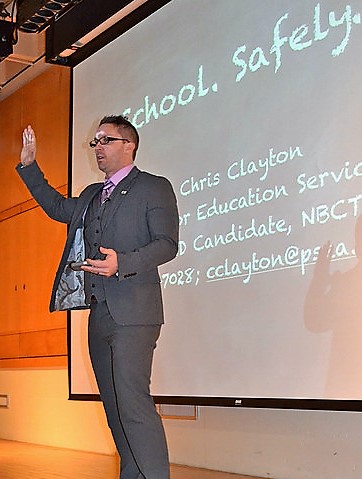
Best Practices for Effective Distance Learning and Instruction
Course Description: This session by PSEA's Dr. Christopher M. Clayton helps educators think through shifting their instructional practices to more effectively align with current research and best practices for creating more engaging distance-learning experiences for students. Delivering effective remote instruction for educators and distance learning for students and families present different challenges from face-to-face instruction, and drawing on the work of experts such as Jennifer Gonzalez, AJ Juliani, Caitlyn Tucker, and many more, this session helps members learn about and explore these shifting educational paradigms of instruction and presents attendees with immediately actionable information, tips, strategies, and “take-away” tools and resources that educators can immediately use in their practice, including an introduction to the powerful DAT (Device Agnostic Technology) resource, NearPod.
Course Hours: Members who complete this course receive 2 HOURS of Act 48 and/or a certificate that may apply for Chapter 14 hours. Your employer has sole discretion to determine if this course qualifies for Chapter 14 hours.
- 2 Hours

Building Background Knowledge
Course Description: For many students, a lack of experiential learning has an impact that negatively impacts learning. This course explores strategies to build background knowledge so that new learning can be accelerated.
Course Hours: Members who complete this course receive 2 HOURS of Act 48 and/or a certificate that may apply for Chapter 14 hours. Your employer has sole discretion to determine if this course qualifies for Chapter 14 hours.
- 2 Hours

Continuous Improvement: Using the Observation Frameworks to Up Your Ed Skills!
Course Description: Explore the PDE Frameworks for Observation and Practice as updated in Summer 2021 as tools for continuous improvement in this informative and interactive workshop. Educators will begin by learning about the Continuous Self-Improvement process and related tools followed by and introduction to the Frameworks. Then, educators will dive into a role-specific exploration of the frameworks with a focus on self-evaluation and then self-reflection. These processes will be focused on elements to inform pre-conferences for and to allow educators to engage in a self improvement process using the continuous improvement tools discussed in the first half of the class. Together, each element empowers educators to elevate their skills and better serve students.
Course Hours: Members who complete this course receive 2 HOURS of Act 48 and a certificate.
- 2 Hours

Building Routines for Student Success in a Virtual Space
Course Description: How can physical classroom routines (submitting work and getting help) be transformed for effective use in virtual spaces? This webinar discusses how to teach students necessary skills to confidently navigate virtual learning communities and also help students transition to virtual/remote learning that seems familiar to face-to-face instruction.
Course Hours: Members who complete this course receive 2 HOURS of Act 48 and/or a certificate that may apply for Chapter 14 hours. Your employer has sole discretion to determine if this course qualifies for Chapter 14 hours.
- 2 Hours

Curating & Implementing Free Resources to Support the Elementary Classroom
Course Description: In this recorded conversation, two experienced teachers discuss the use of various free resources to support the elementary classroom curriculum. They review a variety of sites for finding these sources to enhance standards-based lessons in Math, Science, Social Studies, and ELA. After watching the video, participants will find and share other possible resources as well as reflect on the best use of them in the courses that they teach or plan to teach.
Course Hours: Members who complete this course receive 1 HOUR of Act 48 and/or a certificate that may apply for Chapter 14 hours.
- 1 Hour

Distance Learning Pro Tips
Course Description: This professional learning session, presented by NEA members and current Michigan classroom teachers Chris Thomas and Ellen Brooks, was captured from a live PSEA CPL webinar broadcast May 26, 2020 and provides tips and strategies to up your remote instruction game and allow you to reflect on your distance learning experiences. Participants learn about identifying key tech tools and tips for planning and delivering more effective remote instruction and distance learning experience for students.
Course Hours: Members who complete this course receive 2 HOURS of Act 48 and/or a certificate that may apply for Chapter 14 hours. Your employer has sole discretion to determine if this course qualifies for Chapter 14 hours.
- 2 Hours
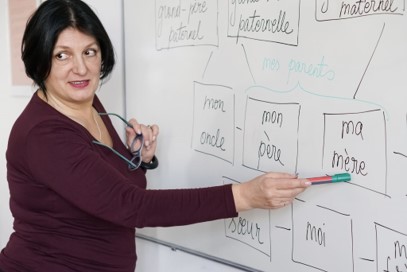
Implementing & Sustaining Target Language Use in the World Language Classroom
Course Description: Many world language teachers struggle to maximize target language (TL) use in their class. With ACTFL's Position Statement on TL Use as a base, explore various ways to instruct novice and intermediate learners in the TL and encourage student use of the TL as well. Through visual support, comprehension checks, encouraging spontaneous language, and providing appropriate feedback, you will develop strategies for increasing TL use in your classroom and for building student (and teacher) confidence in speaking.
Course Hours: Members who complete this course receive 1.5 HOURS of Act 48 and/or a certificate that may apply for Chapter 14 hours.
- 1.5 Hours

Multi-Sensory Learning Using Arts Integration
Course Description: When students are exposed to the same content in different subjects and through multiple senses, they are able to make connections across the disciplines and from home to school. In this session, participants will see examples of cross-curricular lessons that incorporate science, writing, social studies, music, and visual arts. Participants will see and hear examples from the classroom, and they will have an opportunity to immediately apply what they've learned.
Course Hours: Members who complete this course receive 2 HOURS of Act 48 and/or a certificate that may apply for Chapter 14 hours. Your employer has sole discretion to determine if this course qualifies for Chapter 14 hours.
- 2 Hours

Rethinking Grading
Course Description: NEA's Kristal Jaaskelainen and Jeffrey Austin lead this recorded presentation (from July 27, 2021) helping educators see beyond the traditional grading practices that often go unexamined despite their potential for harm. This webinar is designed to critically examine assumptions about grading, look at current grading practices, and imagine alternatives to the status quo.
Course Hours: Members who complete this course receive 2 HOURS of Act 48 and/or a certificate that may apply for Chapter 14 hours. Your employer has sole discretion to determine if this course qualifies for Chapter 14 hours.
- 2 Hours

Touching on the Tools of Act 13 - SPM Templates and Revised Frameworks
Course Description: In this online course, participants will gain a surface level understanding of the tools for use with Act 13’s revised Educator Effectiveness Evaluation System. The first part of the course explores the Student Performance Measures templates, which PDE issued as optional tools to assist LEAs for the documentation of LEA-Selected Measures and IEP Goals Progress data. The second part of the course reviews the revised Danielson Frameworks as issued by PDE in Summer 2021. The third and final part of the course engages participants in a self-led reflection on how each new tool can help them inform their professional practice in the coming school year.
Course Hours: Members who complete this course will be eligible to recieve 1.5 HOURS of Act 48 credit and/or a certificate for Chapter 14 hours. Chapter 14 acceptance is at the full discretion of your employer.
- 1.5 Hours

Time Management and Organization for Online Learning
Course Description: The boundaries between work and home are blurrier than ever. This webinar explores strategies and tools that will help you take care of yourself first so that you may take care of others.
Course Hours: Members who complete this course receive 1.5 HOURS of Act 48 and/or a certificate that may apply for Chapter 14 hours. Your employer has sole discretion to determine if this course qualifies for Chapter 14 hours.
- 1.5 Hours
Supporting All Students Returning to In-Person Instruction
Fall 2021 Professional Issues Session
Course Description: Educators throughout the Commonwealth are challenged to serve students returning to in-person instruction following various levels of remote learning during the COVID-19 pandemic. Educators are encouraged to accelerate learning to help combat learning loss; however, issues such as social and emotional needs and staffing shortages create barriers to success. Several programs and funding initiatives are available to assist schools and educators as they support students; however, educators face time and resource limitations when working with students. This session seeks to empower educators to better determine which supports are likely to yield the most benefits to students. PaTTAN’s Gina Spicknall-Cook and Donna Halpin guide educators in this session to fully capitalize on the multi-tiered systems of support (MTSS) available in most PA schools so that they can provide efficient and effective supports that meet the unique needs of their student populations.
Course Hours: Members who complete this course receive 1.5 HOURS of Act 48 and/or a certificate that may apply for Chapter 14 hours. Your employer has sole discretion to determine if this course qualifies for Chapter 14 hours.
- 1.5 Hours

Assessment and Treatment of Anxiety Across the Developmental Spectrum
Course Description: Anxiety disorders are associated with substantial impairment and comorbidity, and often present vexing problems to even the most experienced clinicians. This pre-recorded webinar addresses the rationale and implementation of the empirically supported cognitive behavioral therapy (CBT) treatments for anxiety in adults, adolescents, and children. Evidence for the conceptual model and the treatments are presented, with strong emphasis placed throughout on the “how-to” of CBT implementation. Detailed examples are provided of the verbal interplay that often arises in the implementation of CBT with patients who have anxiety disorders.
Course Hours: Members who complete this course receive 1.5 HOURS of Act 48 and/or a certificate that may apply for Chapter 14 hours. Your employer has sole discretion to determine if this course qualifies for Chapter 14 hours.
- 1.5 Hours

Emotional Stress and Burnout in Students with Diabetes
Course Description: This presentation provides an overview of Diabetes in school-age children and speaks to the emotional toll this diagnosis has on students.
Course Hours: Members who complete this course receive 1.5 HOURS of Act 48 and/or a certificate that may apply for Chapter 14 hours. Your employer has sole discretion to determine if this course qualifies for Chapter 14 hours.
- 1.5 Hours

Mission Kids 101: The Dynamics of Child Abuse
Course Description: Learn about the work of Mission Kids, a non-profit, 501(c)(3) organization providing multidisciplinary care to alleged victims of sexual and physical abuse. Mission Kids joins a nationwide network of child-focused care facilities designed in accordance with standards established by the National Children’s Alliance and the U.S. Department of Justice. Their ultimate goal is to provide a broad range of support services to child victims and their caregivers in an environment that encourages healing and facilitates better prosecution of alleged offenders. Mission Kids staff also review important dynamics of child abuse for educators to recognize.
Course Hours: Members who complete this course receive 1.5 HOURS of Act 48 and/or a certificate that may apply for Chapter 14 hours. Your employer has sole discretion to determine if this course qualifies for Chapter 14 hours.
- 1.5 Hours

The Psychological Aspects of Lyme and Tickborne Diseases
Course Description: Panel discussion of health and psychological issues associated with Lyme disease (behavioral, social, neurological, etc), as well as: what to look for when grades are impacted, case studies from Dr. Greenberg’s previous experience, IEP 504 considerations, tracking chronic conditions (beyond initial bite/antibiotics and how can this impact a student later).
Course Hours: Members who complete this course receive 2 HOURS of Act 48 and/or a certificate that may apply for Chapter 14 hours. Your employer has sole discretion to determine if this course qualifies for Chapter 14 hours.
- 2 Hours
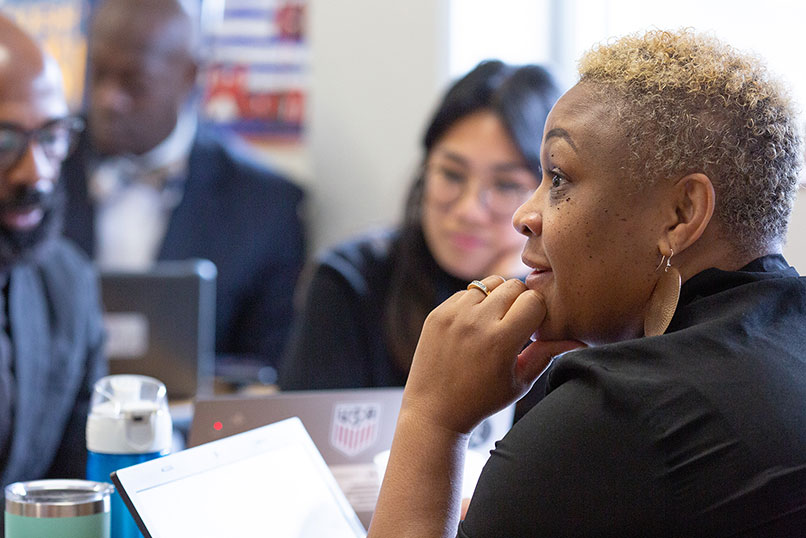
Be Prepared: Effective and Efficient IEPs
Course Description: This course provides regular and special educators information on creating Individualized Education Plans (IEPs) that consider student needs using effective and efficient strategies to create a beneficial plan.
Course Hours: Members who complete this course receive 1 HOUR of Act 48 and/or a certificate that may apply for Chapter 14 hours. Your employer has sole discretion to determine if this course qualifies for Chapter 14 hours.
- 1 Hour
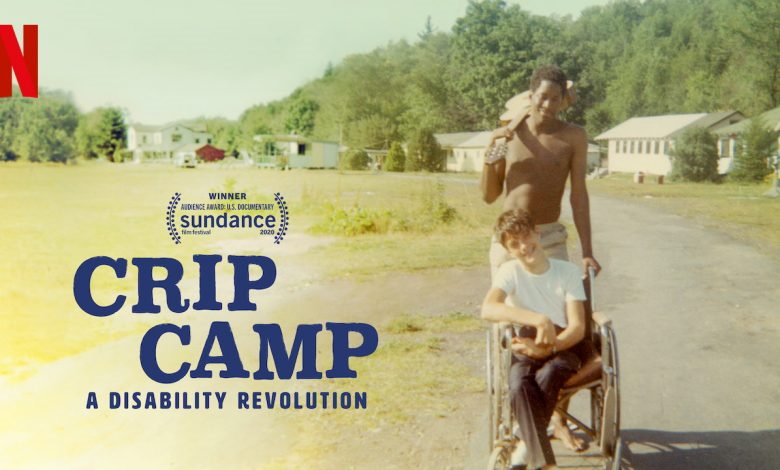
Crip Camp: A Netflix Documentary by High Ground Productions
Course Description: Crip Camp is a documentary film that depicts the disability revolution of the 1970's. This film won the audience award at the Sundance Film Festival upon its release in January of 2020. Crip Camp shares the journey of teenagers that attended Camp Jened and shares their story, both as teenagers with diabilities as well as their unending work toward disability right's advocacy. The goal of the film's directors is to make the audience a camp participant and share the "experience and joy" that changed their lives.
Course Hours: Members who complete this course receive 2.5 HOURS of Act 48 and/or a certificate that may apply for Chapter 14 hours. Your employer has sole discretion to determine if this course qualifies for Chapter 14 hours.
- 2.5 Hours
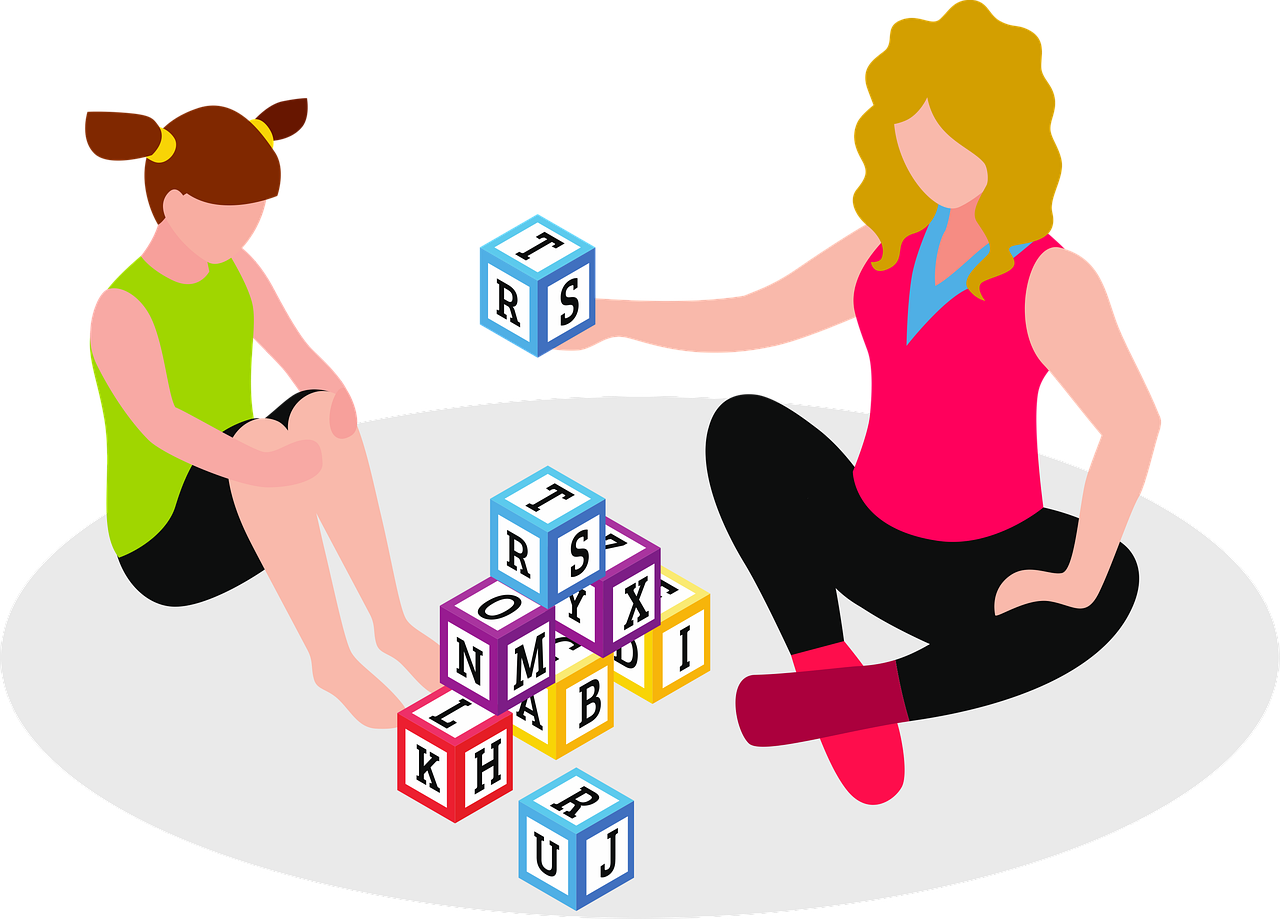
Connect, Collaborate, Create with School-based Occupational Therapy
Course Description: In this course, Dr. Jennifer Washko, OTD-OTR/L, and Dr. Katie Landsiedel, OTD-OTR/L, share information on the role of Occupational Therapy in a school-based setting. Learn strategies for your students and tips on communication and collaboration to enhance student learning and achievement.
Course Hours: Members who complete this course receive 2 HOURS of Act 48 and/or a certificate that may apply for Chapter 14 hours. Your employer has sole discretion to determine if this course qualifies for Chapter 14 hours.
- 2 Hours

Supporting Newly Arrived Immigrant Students
Course Description: Newly arrived immigrants often arrive with unique challenges: limited experience with English, academic gaps, and may not be on grade level in their home language. This session will offer suggestions for supporting these students’ academic and social-emotional growth.
Course Hours: Members who complete this course receive 2 HOURS of Act 48 and/or a certificate that may apply for Chapter 14 hours. Your employer has sole discretion to determine if this course qualifies for Chapter 14 hours.
- 2 Hours
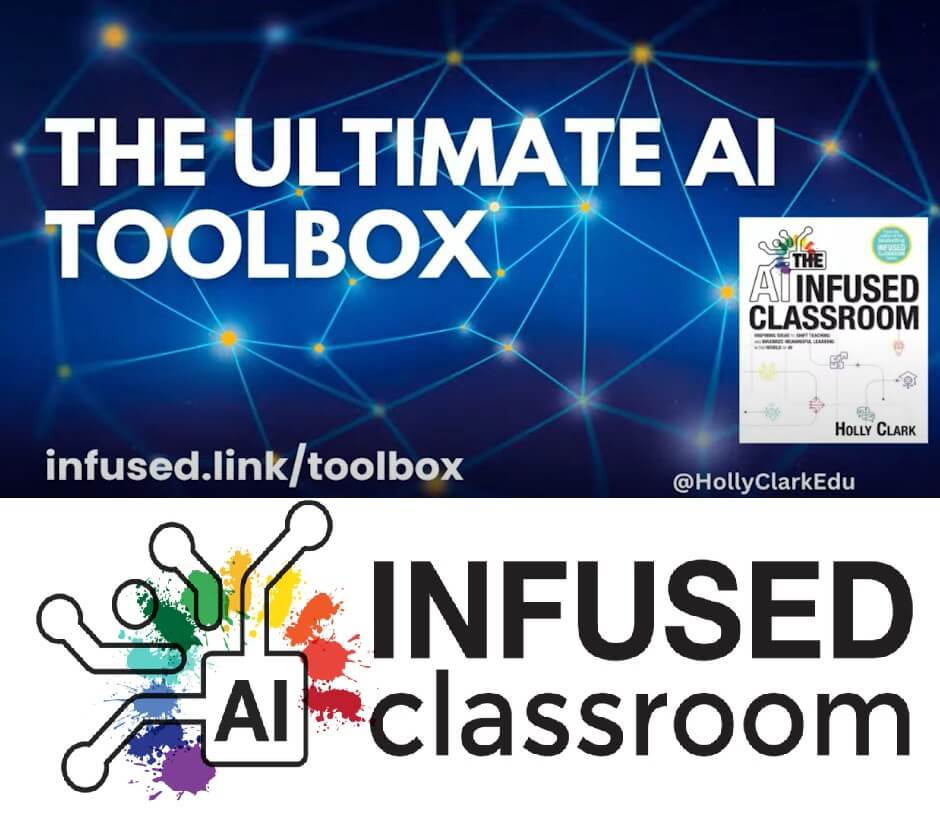
The Ultimate AI Learning Toolbox
- 1.5 Hours
Note: This course is a recording of the December 2024 PSEA House of Delegates Professional Issues session. Members who previously earned learning hours for attending that session cannot earn additional Act 48 hours by completing this course.
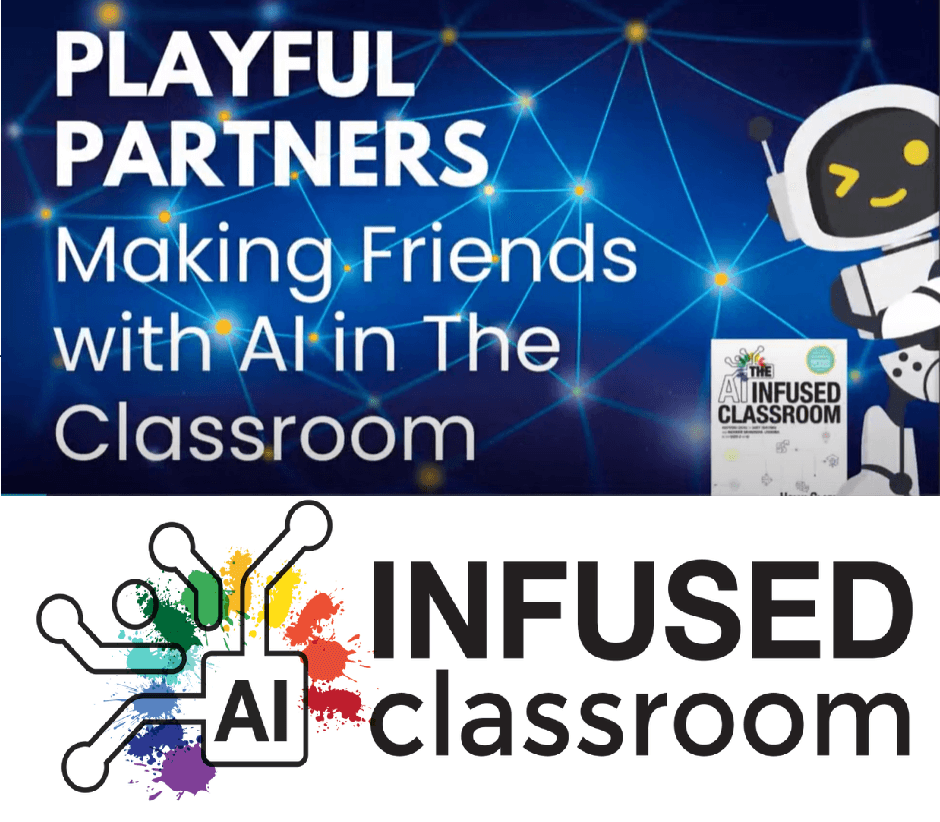
Playful Partners: Making Friends with AI in the Classrom
- 1.5 Hours
Course Description: In "Playful Partners: Making Friends with AI in the Classroom," presenter Holly Clark, an AI in Education Strategist, explores the innovative integration of artificial intelligence into modern education. This session is designed to help educators understand how AI can be used as a partner to enhance learning and foster positive student engagement with technology. Participants can expect to gain practical insights into using AI tools for creativity, thought partnership, and instant feedback as well as learn about a variety of AI models such as ChatGPT, Gemini, and Claude. The session will emphasize how to use AI to personalize educational content and support students with diverse needs, including those with learning differences and those who speak English as a second language. Educators will leave equipped to consider how to best leverage AI to improve learning experiences in the classroom.
Note: This course is a recording of the December 2024 PSEA House of Delegates Professional Issues session. Members who previously earned learning hours for attending that session cannot earn additional Act 48 hours by completing this course.
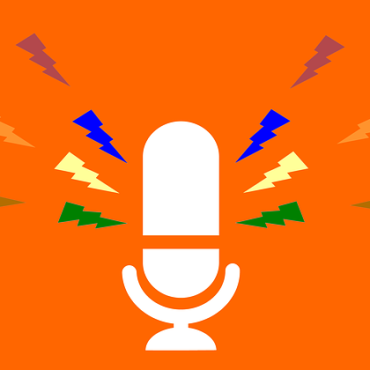
Can you Hear Us Now? Using Podcasts to Teach and Entertain
Course Description: Creating and producing your own podcast can be both effective and rewarding. Podcasts provide an easy and unique way to convey information, as well as engage your student audience with supplemental material that the time in a typical class period would not permit. Podcasts can be easy and fun to make, enjoyable for your audience, and can be accessed at any time! Learn more about the benefits to creating your own educational podcast, as well as the logistics behind developing your own podcast!
Course Hours: Members who complete this course receive 2 HOURS of Act 48 and/or a certificate that may apply for Chapter 14 hours. Your employer has sole discretion to determine if this course qualifies for Chapter 14 hours.
- 2 Hours
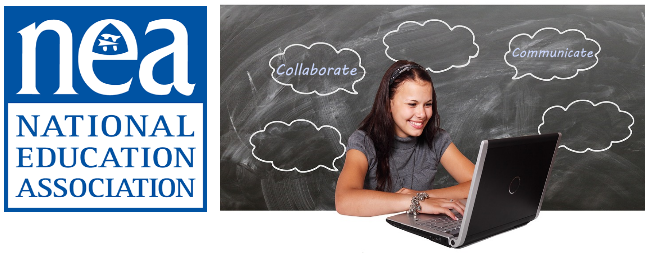
NEA's Digital Tools for Collaboration & Communication
Course Description: This course guides educators through the many options for online collaboration and communication with students, families, and colleagues, showcasing tools that can be used to ease the communication process between school and home in the event of remote learning. Participants develop options for online collaboration and communication with students, families, and colleagues, learn how digital tools can be used to ease the communication process between school and home in the event of remote learning, and become aware of the basics of available online platforms to collaborate and communicate online, including virtual meetings, messaging, screencasts, structural platforms, appointment and content creation tools.
Course Hours: Members who complete this course receive 3 HOURS of Act 48 and/or a certificate that may apply for Chapter 14 hours. Your employer has sole discretion to determine if this course qualifies for Chapter 14 hours.
- 3 Hours

Epic!: the "Netflix" of Books for Educators and Students
Course Description: Captured from a live PSEA CPL Webinar broadcast on July 7, 2020, in this session Participants learn all about Epic! and how it can be used in a variety of ways in the classroom. Epic! is an amazing tool for promoting student reading voice and choice, but what about its teacher features? Assign students books as a class, in groups, or individually. Create, edit, or utilize collections on topics, themes or whatever else may apply for your use! Monitor student progress and use through-tracking tools to influence conferencing (4 books in 11 minutes you say?!).
Course Hours: Members who complete this course receive 1.5 HOURS of Act 48 and/or a certificate that may apply for Chapter 14 hours. Your employer has sole discretion to determine if this course qualifies for Chapter 14 hours.
- 1.5 Hours

Let's Get Digital: Digital Reading Strategies
Course Description: Engage students with digital reading strategies. Differentiate and maximize your plan time with edTech like self-grading Readworks! Customize your lessons quickly with digital sorts and graphic organizers through Google Slides, Google Draw, and Padlet.
Course Hours: Members who complete this course receive 1.5 HOURS of Act 48 and/or a certificate that may apply for Chapter 14 hours. Your employer has sole discretion to determine if this course qualifies for Chapter 14 hours.
- 1.5 Hours

